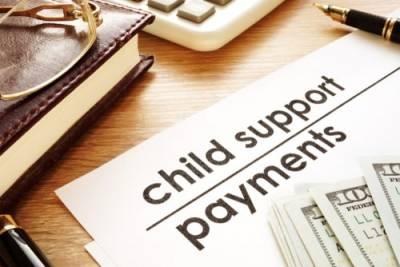Recent Blog Posts
Top Questions About Alimony in Illinois
 If you are getting divorced, you may understandably have concerns about the divorce’s impact on your finances. Illinois law allows courts to award spousal maintenance, also referred to as alimony or spousal support, to help offset the negative financial impact of a divorce. However, spousal maintenance is only available in certain circumstances. Many people misunderstand how and when maintenance is available in an Illinois divorce. Read on to learn the answers to the most frequently asked questions about spousal maintenance.
If you are getting divorced, you may understandably have concerns about the divorce’s impact on your finances. Illinois law allows courts to award spousal maintenance, also referred to as alimony or spousal support, to help offset the negative financial impact of a divorce. However, spousal maintenance is only available in certain circumstances. Many people misunderstand how and when maintenance is available in an Illinois divorce. Read on to learn the answers to the most frequently asked questions about spousal maintenance.
How Can You Get Alimony?
Alimony or spousal maintenance is not automatically awarded to a spouse in Illinois. There are three main ways that you may receive spousal maintenance:
Mutual agreement between the spouses – You and your spouse may be able to agree to spousal maintenance terms through your respective attorneys or during the mediation process.
What Types of Protection Orders Are Available in Illinois?
 Domestic abuse can take many forms. Some victims suffer physical abuse including punching and kicking. Others are psychologically manipulated and isolated from their loved ones. Some aggressors show up at the victims’ homes, schools, and workplaces or use threats and intimidations to maintain control over their victims. If you have been stalked, threatened, or abused, you should know that there are legal protections available to you in the form of protection orders.
Domestic abuse can take many forms. Some victims suffer physical abuse including punching and kicking. Others are psychologically manipulated and isolated from their loved ones. Some aggressors show up at the victims’ homes, schools, and workplaces or use threats and intimidations to maintain control over their victims. If you have been stalked, threatened, or abused, you should know that there are legal protections available to you in the form of protection orders.
Emergency Order of Protection
Domestic violence or domestic abuse involves abuse between family members, past or current romantic partners, or household members. If you have been the victim of domestic violence, consider obtaining an Emergency Order of Protection (EOP). An EOP is a court order that prohibits the abusive person from contacting you or coming near you. Depending on your particular needs, the EOP may require the abusive person to temporarily move out of your shared home, surrender his or her Firearm Owner Identification Card, and stay away from your work or school. You can get an EOP on an “ex parte” basis which means that the subject of the order does not need to be present. Often, EOPs are issued by the court on the same day on which they are requested. An EOP is a legally binding court order. Violating any provision within an EOP is a criminal offense.
Top 5 Questions About Child Support in Illinois
 Child support is a crucial form of financial support for divorced and unmarried parents in Illinois. Both of a child’s parents are expected to contribute financially to his or her upbringing – even if they are not married to each other. Child support allows parents to share child-related expenses including housing, tuition, and other educational costs, clothing, and more. However, child support laws are often confusing and hard to interpret. Read on to learn answers to some of the top questions Illinois parents have about child support.
Child support is a crucial form of financial support for divorced and unmarried parents in Illinois. Both of a child’s parents are expected to contribute financially to his or her upbringing – even if they are not married to each other. Child support allows parents to share child-related expenses including housing, tuition, and other educational costs, clothing, and more. However, child support laws are often confusing and hard to interpret. Read on to learn answers to some of the top questions Illinois parents have about child support.
Which Parent Pays Child Support?
The parent with the greater amount of “parenting time” is the recipient of child support and the parent with less parenting time pays child support. Parenting time used to be called visitation. When both parents have at least 40 percent of the parenting time or 146 overnights with the children, this is a shared parenting situation. Child support payments are modified to reflect the fact that both parents have the child a similar amount of time.
What is a Divorce Coach and Do I Need One?
 Ending a marriage can turn your entire world upside down. It is no wonder that divorce is considered to be one of the most stress-inducing life experiences a person can go through. Dealing with the legal, financial, practical, and emotional implications of divorce can be overwhelming for anyone.
Ending a marriage can turn your entire world upside down. It is no wonder that divorce is considered to be one of the most stress-inducing life experiences a person can go through. Dealing with the legal, financial, practical, and emotional implications of divorce can be overwhelming for anyone.
Divorce coaches are mental health professionals who help divorcing spouses cope with the turmoil of divorce and make sound decisions during the divorce process. If you are thinking about ending your marriage, a divorce coach may help you reduce stress, avoid unnecessary contention, and work toward a favorable divorce outcome.
A Divorce Coach Can Help You Cope with Difficult Emotions
Anyone who has gotten divorced can confirm that the process is rife with emotion. Most divorcing spouses still hold anger and resentment toward each other. There are often years of built-up tension and frustration before a marriage officially ends. If this situation describes you, you may understandably have a hard time making decisions based on logic and reason instead of emotion during your divorce. A divorce coach helps you cope with these difficult feelings in a positive, non-destructive way so the emotions do not harm your chances of a favorable divorce outcome.
Do You Have to Be Separated for a Certain Amount of Time Before Divorcing in Illinois?
 The decision to end your marriage is likely one of the biggest decisions of your life. There is no “undoing” a divorce once it is finalized. Consequently, some states require married spouses to wait a certain amount of time before they can get divorced. Illinois used to have such a requirement; however, there is no longer a mandatory separation period or waiting period for divorce in Illinois. That being said, there are still certain criteria that must be met before you can divorce in Illinois.
The decision to end your marriage is likely one of the biggest decisions of your life. There is no “undoing” a divorce once it is finalized. Consequently, some states require married spouses to wait a certain amount of time before they can get divorced. Illinois used to have such a requirement; however, there is no longer a mandatory separation period or waiting period for divorce in Illinois. That being said, there are still certain criteria that must be met before you can divorce in Illinois.
Divorce Requirements and the Separation Period
To get divorced in Illinois, you or your spouse must have lived in the state for 90 days or longer. You may divorce in Illinois even if you were not married in the state.
Before changes to the Illinois Marriage and Dissolution of Marriage Act, spouses also had to live apart for a certain period of time before they were eligible for divorce. In 2021, though, there is no longer a mandatory separation period. Furthermore, there are no longer fault-based grounds for divorce in Illinois. The only reason you can seek a divorce in Illinois is “irreconcilable differences.” In other words, you and your spouse simply cannot get along anymore, and you wish to terminate your marriage relationship.
How Can I Bring Up a Prenuptial Agreement with My Partner?
 Prenuptial agreements are marital contracts that cover a wide range of issues. These documents are grossly misunderstood by the general public. Some people assume that prenuptial agreements are only necessary if a spouse intends to get divorced or does not take the marriage seriously. Others assume that if a spouse asks for a prenuptial agreement, he or she plans to take advantage of the other spouse financially. Although these myths are slowly being replaced by facts, it can still be a difficult topic to broach with a fiancé(e).
Prenuptial agreements are marital contracts that cover a wide range of issues. These documents are grossly misunderstood by the general public. Some people assume that prenuptial agreements are only necessary if a spouse intends to get divorced or does not take the marriage seriously. Others assume that if a spouse asks for a prenuptial agreement, he or she plans to take advantage of the other spouse financially. Although these myths are slowly being replaced by facts, it can still be a difficult topic to broach with a fiancé(e).
Wait Until the Right Time to Talk About a Prenup
Prenuptial agreements are increasingly popular among engaged couples, especially couples who own substantial assets or investments or have substantial debts. If you are interested in signing a prenup before tying the knot, you may be unsure of how to bring it up with your partner.
What Happens During Divorce Discovery in Illinois?
 If you are getting divorced, you may be completely unsure of what to expect. How long will the divorce take? Will I need to go to court? What steps are involved in the divorce process? Questions like these are important. While there is no way to predict exactly how your divorce case will unfold, educating yourself about the Illinois divorce process will help you prepare for the different possibilities. The “discovery” phase of the divorce involves gathering facts and information using discovery tools such as interrogatories and depositions.
If you are getting divorced, you may be completely unsure of what to expect. How long will the divorce take? Will I need to go to court? What steps are involved in the divorce process? Questions like these are important. While there is no way to predict exactly how your divorce case will unfold, educating yourself about the Illinois divorce process will help you prepare for the different possibilities. The “discovery” phase of the divorce involves gathering facts and information using discovery tools such as interrogatories and depositions.
Discovery Depends on the Spouses’ Transparency
Divorcing spouses are asked to fill out a financial disclosure form in which they list assets, income, and other financial data. If both spouses freely disclose accurate financial data and other relevant information, the discovery process involves little more than confirming this information. Unfortunately, in many divorce cases, spouses are not fully transparent about financial issues or other divorce concerns. They may refuse to disclose certain information, hide assets, or lie about parenting matters. Consequently, the spouses’ attorneys must use various legal methods to obtain this information and ensure its accuracy.
4 Questions About Alimony in Illinois Divorce Cases
 Alimony, spousal maintenance, and spousal support are all terms used to describe the financial assistance an individual provides to his or her spouse during or after divorce. In Illinois, you can request temporary spousal maintenance while your divorce is ongoing through a “temporary relief order.” You may also receive payments after the divorce is complete. However, spousal maintenance is not guaranteed, and many divorce cases conclude without a spousal maintenance order. Read on to learn about how, why, and when spousal maintenance is awarded in Illinois.
Alimony, spousal maintenance, and spousal support are all terms used to describe the financial assistance an individual provides to his or her spouse during or after divorce. In Illinois, you can request temporary spousal maintenance while your divorce is ongoing through a “temporary relief order.” You may also receive payments after the divorce is complete. However, spousal maintenance is not guaranteed, and many divorce cases conclude without a spousal maintenance order. Read on to learn about how, why, and when spousal maintenance is awarded in Illinois.
How Can You Get Spousal Support?
Spousal maintenance may be awarded to a spouse if the spouses agreed to maintenance in a valid prenuptial or postnuptial agreement. The spouses may also reach an agreement on the amount and duration of maintenance payments during settlement negotiations in their divorce. Lastly, a spouse may request maintenance by filing a petition with the court.
How Does Visitation Work in an Illinois Divorce?
 Many parents who are thinking about ending their marriage have the same concern. They wonder, “How often will I get to see my kids if we divorce?” If you are thinking about divorce and you live in Illinois, it is important to understand how the state handles visitation. It is also important to know the vocabulary Illinois courts now use to describe parenting duties. In Illinois, the term “visitation” is no longer used to describe the time that a child spends with each parent. Visitation has been replaced by the term “parenting time.” Read on to learn about how parenting time decisions are handled in Illinois divorce cases.
Many parents who are thinking about ending their marriage have the same concern. They wonder, “How often will I get to see my kids if we divorce?” If you are thinking about divorce and you live in Illinois, it is important to understand how the state handles visitation. It is also important to know the vocabulary Illinois courts now use to describe parenting duties. In Illinois, the term “visitation” is no longer used to describe the time that a child spends with each parent. Visitation has been replaced by the term “parenting time.” Read on to learn about how parenting time decisions are handled in Illinois divorce cases.
How Much Parenting Time Does Each Parent Get?
Parents have the right to design their own parenting plan and submit it to the court for approval. As long as the parenting plan serves the child’s best interests, the plan will be approved and formalized into a binding court order. The parenting plan contains important information about how parents will make major decisions such as where the child goes to school, as well as the parenting time schedule. Some parents decide to split parenting time nearly equally. Others create a plan in which the child lives with one parent on the weekend and the other parent on the weekdays.
What Counts as Abuse for an Illinois Order of Protection?
 Domestic violence affects the lives of millions of people every day in the United States, and Illinois residents are no exception. If you or a loved one has experienced domestic violence or abuse, you may have questions about protection orders. In Illinois, an Emergency Order of Protection is often issued on the same day that it was requested. It prohibits the subject of the order from contacting or coming near the petitioner and may also contain other provisions such as a provision requiring the subject to surrender his or her firearms. An order of protection also helps to create an official record of the abusive person’s behavior. However, many abuse victims fail to get this important and potentially life-saving protection because they do not know if what they experienced was technically abuse under the law.
Domestic violence affects the lives of millions of people every day in the United States, and Illinois residents are no exception. If you or a loved one has experienced domestic violence or abuse, you may have questions about protection orders. In Illinois, an Emergency Order of Protection is often issued on the same day that it was requested. It prohibits the subject of the order from contacting or coming near the petitioner and may also contain other provisions such as a provision requiring the subject to surrender his or her firearms. An order of protection also helps to create an official record of the abusive person’s behavior. However, many abuse victims fail to get this important and potentially life-saving protection because they do not know if what they experienced was technically abuse under the law.
Can I Get an Order of Protection If the Abuser Never Physically Harmed Me?
A few years ago, the social media hashtag #MaybeHeDoesntHitYou flooded Facebook and Twitter. Using the hashtag, many abuse victims shared stories of abusive relationships that did not involve typical abusive tactics like punching, slapping, or kicking. The campaign was a valuable reminder to many that abuse takes nearly countless forms and not every form is physical.







 630-364-4046
630-364-4046





